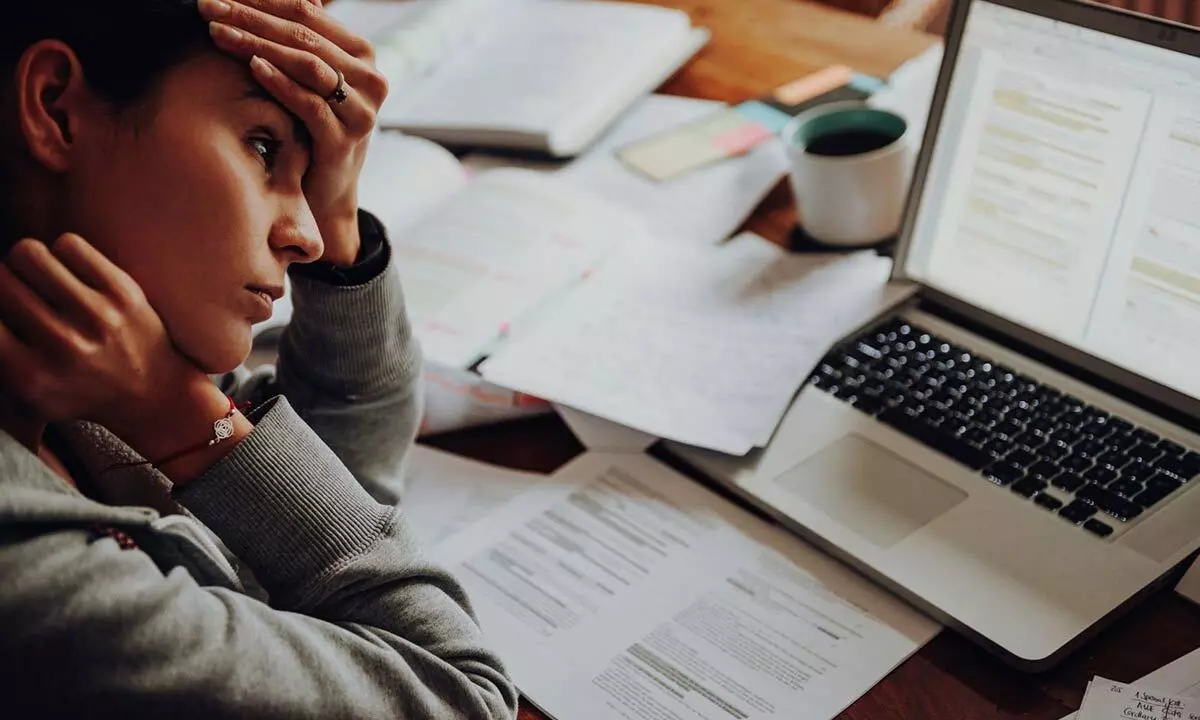Mental health struggle and tips to overcome

Mental health struggle and tips to overcome
Exam anxiety also known as performance anxiety is a state of fear, apprehension, uneasiness, or panic that can occur before, during, or after an exam
Exam anxiety also known as performance anxiety is a state of fear, apprehension, uneasiness, or panic that can occur before, during, or after an exam. It hinders learning and impairs working memory. Almost, every student experiences some level of worry throughout an exam but some students may have significant anxiety that negatively impacts their exam performance.
Board exams have developed into a do-or-die situation that puts students under a lot of stress and anxiety. If left unchecked, this could result in serious mental health problems. The following are some ways that severe exam anxiety might manifest itself: cognitive (thoughts), behavioral (actions), and physiological (bodily indicators), and emotional (feelings).
The strategies aim to aid students in comprehending the nature of their nervousness so they can deal with approaching exams more skillfully. Psychologists can suggest ways to enhance study skills in addition to offering a variety of techniques to help manage exam anxiety which are as follows:
l Behavioral interventions like mindfulness training can help the student to focus on recognising and embracing anxious thoughts and physical manifestations that result from in anxiety.
l Plan an early revision that includes solutions pertaining to the course and a productive timetable that robust preparation.
l Trying to cram is never a good idea and staying up all night can make you more anxious. The likelihood is that getting enough sleep (9-10 hours per night) will be more advantageous than staying up until morning. Getting a good night's sleep can help one feel fresher and more energized for the exam.
l Before an exam, eat a healthy breakfast and take a few shrewd snacks for sustained energy. Instead of food that gives a sugar high followed by a crash, look for food that provides a consistent supply of nutrients.
l Think logically instead of irrationally. After proving that a worry is unfounded, one can work on replacing it with a more reasonable and rational idea. This will assist to bring the mind back to reality and break down illogical fears
l Rushing around will only make the anxiety worse. Don't rush, prepare everything you need the night before the exam and set the alarm so you can leave on time.
l Building a positive attitude is really important. Bring a photo of your happy spot or think of a phrase to build confidence such as "I can do this" or "I deserve it since I worked hard". Right before the exam starts, sneak peek at your photo or exclaim your phrase.
l Important to start with a calm mind by taking a few deep breaths before you look at the exam sheet. Fear may increase when a student is in front of a blank paper. After reading the instructions, get started by creating an outline for the answers that one needs. To boost one's confidence and momentum, look at the questions that one can ace. A few fast responses can get things moving but one can always go back and make changes later if necessary.
l It can be challenging to accomplish anything productive in those last few minutes when one is aware that the time limit is approaching and there are still many questions left to answer. Check out the entire exam before beginning to maintain the speed. Determine in the mind, how much time will be devoted to each question. If there is time to recheck, that is even better.
l Deep breathing can slow down a pounding heart or a racing mind. Even just paying attention to one's breathing and thoughts can biometrically change how worried one feels. A hopeful tool for managing anxiety is talking to one's parents, instructors, and guidance counselors.














